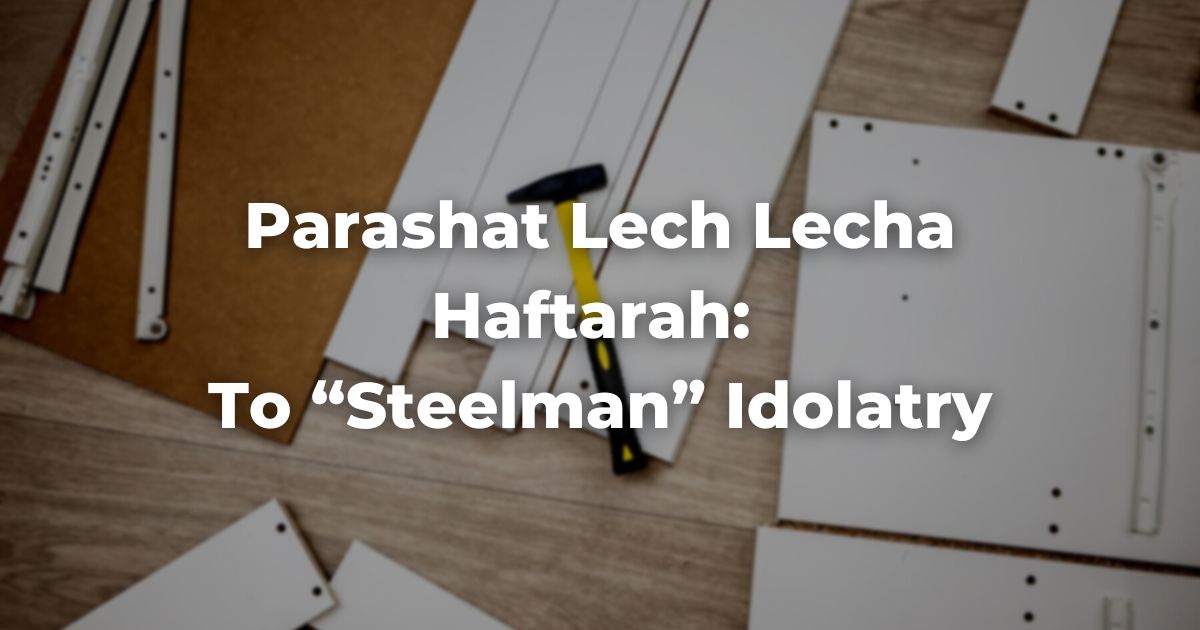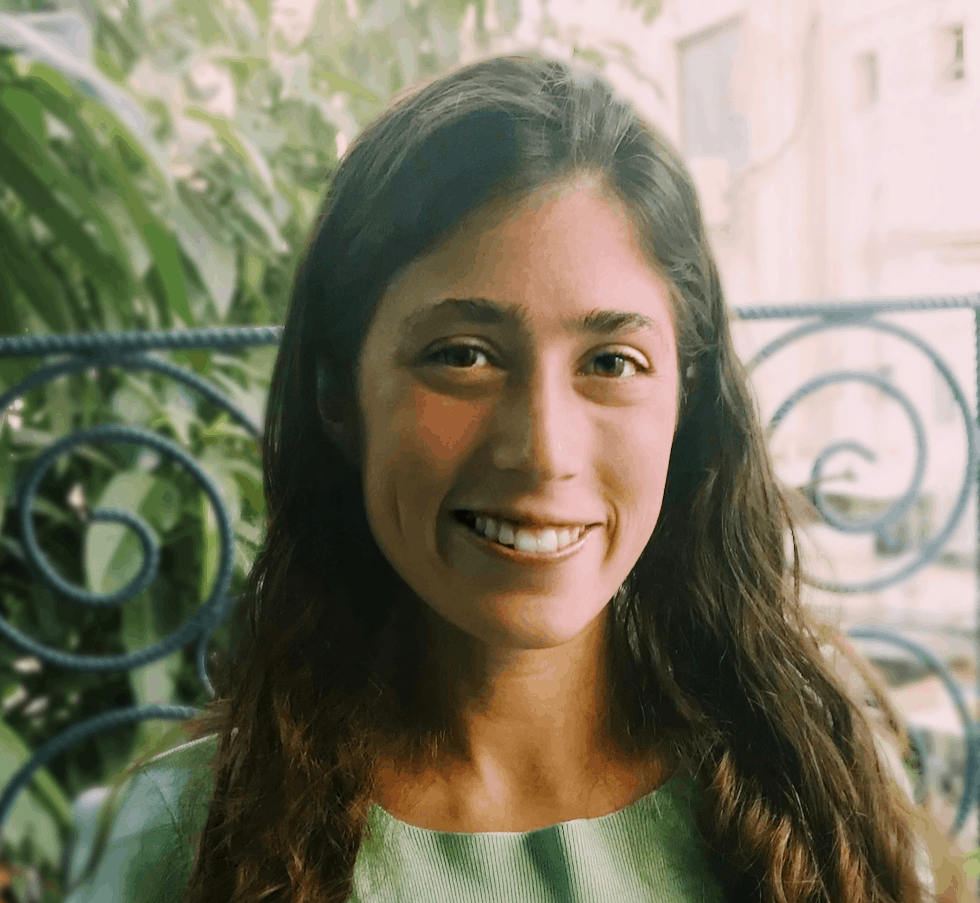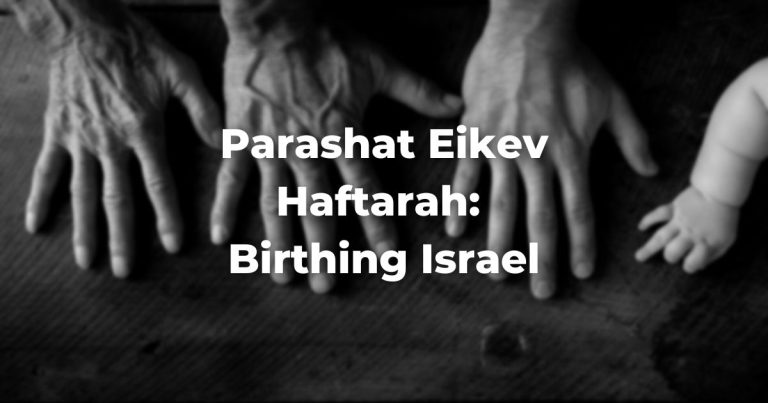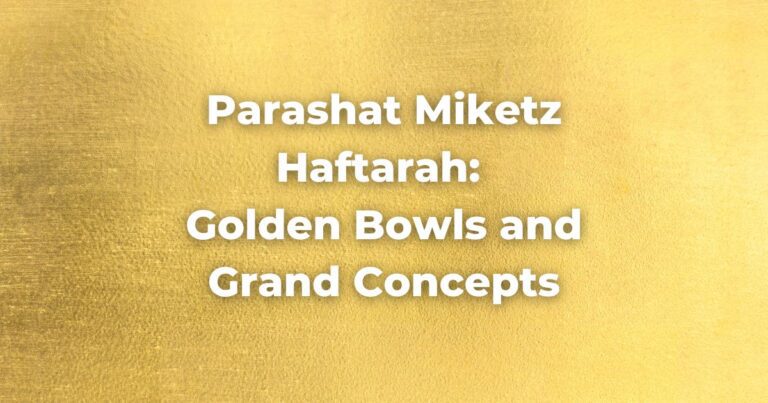Parashat Lech Lecha Haftarah Reflection
How many idolaters does it take to build an idol? Is this a whole community affair with a potluck afterward or can I do it in my basement on a rainy afternoon? Do I need technical expertise? Does building Ikea furniture qualify me for the job? If I’m just looking to worship an idol, do I really need to build my own? Can I get one ready-made?
Our haftarah portion, Isaiah 40:27-41:16, is largely a call to the exiles in Babylon to trust in God and their return to the land of Israel, following the journey that Abraham made more than a thousand years earlier.
There is much talk about God’s role in creation and God’s role in the return. We find fairly typical language about the rest of the peoples as opposed to the chosen people of Israel. And then, in the middle of all of this, we get a confusing instruction manual on idol building in Isaiah 41:6-7, featuring a cast of supportive artisans.
Not only is the existence of the verse perplexing, the verse itself is also difficult to translate. It’s unclear who is involved, what material they are using, and what it is they are making.
We can contextualize it by reading it together with Isaiah 40:19-20. Altogether, in Robert Alter’s translation, they read like this:
“The craftsman has shaped the idol, and the smith overlays it with gold and forges the links of silver. Mulberry wood for the gift, wood that won’t rot he chooses. A skilled craftsman he seeks for himself to ready an idol that will not topple… Each man helps his fellow and to his brother says, ‘Be strong.’ And the craftsman strengthens the smith, the hammer wielder—the anvil pounder. He says to the glue, ‘It is good,’ and strengthens it with nails that it not totter.”
These people do not seem evil. Everyone is helping out and pitching in!
We even recognize that word, “be strong” from the repeated command in Deuteronomy and Joshua, given to us as we enter the land, “be strong and resolute.”
It is as if we have fallen through Alice’s looking glass. We are given a vision of what our lives might have been, if only they’d been a little different.
Rather than being strangers in exile, about to embark on a perilous journey to a land our grandparents left with great trauma, we are given a moment to imagine life from the point of view of the people who belong – the happy society of skilled artists who create together in harmony. They even reuse God’s language from creation, saying to the glue, “it is good!”
We get to peer into their world for a minute from the point of view of those who can never quite enter it. It looks just like our world, but simpler, easier, and without God.
Not only are we given the full Ikea assembly instructions, they are also offering us free delivery.
The haftarah is in effect “steel-manning” idolatry: it makes the most persuasive possible case for idolatry, and presents it in the best possible light, before demolishing it as an idea.
Even with the idyllic view of idolatry, what Isaiah tells to us is ours and it is better. We get God. On our side is the creator of the world, the maker and destroyer of mountains, the cause of storms. We get our heritage, a people who have existed for thousands of years, in relation with God.
Having glanced through the looking glass, we come back home.
See more: Parashat Lech Lecha
Originally posted as part of the Conservative Yeshiva at the Fuchsberg Jerusalem Center’s Torah Sparks. Support TorahRefers to the first five books of the Hebrew Bible, the Tanakh, also called the Five Books of Moses, Pentateuch or the Hebrew equivalent, Humash. This is also called the Written Torah. The term may also refer to teachings that expound on Jewish tradition. Read more learning from the Fuchsberg Jerusalem Center/Conservative Yeshiva for leaders and seekers around the world here.
Authors
-

Bex Stern Rosenblatt is the Conservative Yeshiva’s Faculty-in-Residence for the Mid-Atlantic Region of the United States, teaching Tanach, using the techniques of close-reading, theater, feminist readings, and traditional commentators. Bex also directs the CY’s recruitment efforts in North America. After finishing her B.A. in History and German at Williams College, Bex received a Fulbright Grant to Austria. She later earned an M.A. in TanakhAn acronym for the name of the Hebrew Bible: Torah, Neviim, and Ketuvim. Read more from Bar Ilan University and has also studied at the Conservative Yeshiva and Bina Jerusalem. Bex is the founder of HavrutaA study partner. A hevruta is more than just a ‘study buddy’ it is a serious and personal relationship between colleagues. Also spelled: Havruta Read more Tel Aviv, an organization that facilitates guided pair-learning of the Tanakh.
View all posts -



The Fuchsberg Jerusalem Center (FJC) is a home in the heart of Jerusalem where leaders and seekers can find an authentic place in Jewish tradition to call their own. FJC offers opportunities to study, pray and explore within an egalitarian and inclusive setting, creating multiple pathways for finding personal and communal meaning.
View all posts






